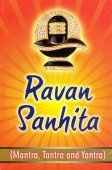Shon, Śoṇ: 10 definitions
Introduction:
Shon means something in Hinduism, Sanskrit, the history of ancient India, Hindi, biology. If you want to know the exact meaning, history, etymology or English translation of this term then check out the descriptions on this page. Add your comment or reference to a book if you want to contribute to this summary article.
The Sanskrit term Śoṇ can be transliterated into English as Son or Shon, using the IAST transliteration scheme (?).
Images (photo gallery)
(+153 more images available)
India history and geography
Source: Shodhganga: Vernacular architecture of Assam with special reference to Brahmaputra ValleySon is an Assamese term referring to “thatching grass”.—It appears in the study dealing with the vernacular architecture (local building construction) of Assam whose rich tradition is backed by the numerous communities and traditional cultures.

The history of India traces the identification of countries, villages, towns and other regions of India, as well as mythology, zoology, royal dynasties, rulers, tribes, local festivities and traditions and regional languages. Ancient India enjoyed religious freedom and encourages the path of Dharma, a concept common to Buddhism, Hinduism, and Jainism.
Biology (plants and animals)
Source: Wisdom Library: Local Names of Plants and DrugsShon in the Bengali language is the name of a plant identified with Crotalaria juncea L. from the Fabaceae (Pea) family having the following synonyms: Crotalaria sericea, Crotalaria benghalensis, Crotalaria viminea. For the possible medicinal usage of shon, you can check this page for potential sources and references, although be aware that any some or none of the side-effects may not be mentioned here, wether they be harmful or beneficial to health.
Source: Google Books: CRC World Dictionary (Regional names)1) Shon in India is the name of a plant defined with Crotalaria juncea in various botanical sources. This page contains potential references in Ayurveda, modern medicine, and other folk traditions or local practices It has the synonym Crotalaria ferestrata Sims (among others).
2) Shon is also identified with Salix babylonica It has the synonym Salix matsudana Koidz. (etc.).
Example references for further research on medicinal uses or toxicity (see latin names for full list):
· Journal of Economic and Taxonomic Botany (1985)
· Species Plantarum. (1800)
· Bangladesh J. Pl. Taxon. (1994)
· Species Plantarum. (1802)
· Journal of Economic and Taxonomic Botany (1995)
· Hortus Bengalensis (1814)
If you are looking for specific details regarding Shon, for example extract dosage, diet and recipes, pregnancy safety, health benefits, side effects, chemical composition, have a look at these references.

This sections includes definitions from the five kingdoms of living things: Animals, Plants, Fungi, Protists and Monera. It will include both the official binomial nomenclature (scientific names usually in Latin) as well as regional spellings and variants.
Languages of India and abroad
Sanskrit dictionary
Source: DDSA: The practical Sanskrit-English dictionaryŚoṇ (शोण्).—1 P. (śoṇati)
1) To go, move.
2) To become red.
Source: Cologne Digital Sanskrit Dictionaries: Shabda-Sagara Sanskrit-English DictionaryŚoṇ (शोण्).—[(ṛ)śoṇṛ] r. 1st cl. (śoṇati) 1. To be red. 2. To move or approach.
Source: Cologne Digital Sanskrit Dictionaries: Benfey Sanskrit-English DictionaryŚoṇ (शोण्).—i. 1, [Parasmaipada.] 1. To become red (rather a [denominative.] derived from the next). 2. To go, to move. śoṇita, see s. v.
Source: Cologne Digital Sanskrit Dictionaries: Monier-Williams Sanskrit-English DictionaryŚoṇ (शोण्):—(rather [Nominal verb] [from] next) [class] 1. [Parasmaipada] ([Dhātupāṭha xiii, 13]) śoṇati (occurring only in [perfect tense] śuśoṇa), to be or become red, [Harṣacarita];
—to go, move, approach, [Dhātupāṭha]
Source: Cologne Digital Sanskrit Dictionaries: Yates Sanskrit-English DictionaryŚoṇ (शोण्):—(ṝ) śoṇati 1. d. To be red; to move.
[Sanskrit to German]
Sanskrit, also spelled संस्कृतम् (saṃskṛtam), is an ancient language of India commonly seen as the grandmother of the Indo-European language family (even English!). Closely allied with Prakrit and Pali, Sanskrit is more exhaustive in both grammar and terms and has the most extensive collection of literature in the world, greatly surpassing its sister-languages Greek and Latin.
Hindi dictionary
Source: DDSA: A practical Hindi-English dictionarySon in Hindi refers in English to:—(nm) soanes; an allomorph of [sona] (gold) used as the first member in several compound words (as [sonaciraiya, sonajuhi] )..—son (सोन) is alternatively transliterated as Sona.
...
See also (Relevant definitions)
Starts with (+98): Shomti, Shomtikombu, Shona, Shonabana, Shonabhadra, Shonacala, Shonadhara, Shonahaya, Shonajhinti, Shonajhintika, Shonaka, Shonakari, Shonakarna, Shonam, Shonama, Shonamakhi, Shonamani, Shonambu, Shonambuja, Shonanada.
Ends with: Kaneishon.
Full-text (+16363): Putra, Tanaya, Rama, Shatrughna, Vasudeva, Rohita, Tanuja, Kuru, Nimi, Medhatithi, Pracetas, Puru, Kusha, Turvasu, Marici, Rishabha, Kritaka, Shoniman, Hastin, Bhadrashva.
Relevant text
Search found 426 books and stories containing Shon, Śoṇ, Son; (plurals include: Shons, Śoṇs, Sons). You can also click to the full overview containing English textual excerpts. Below are direct links for the most relevant articles:
Blue Annals (deb-ther sngon-po) (by George N. Roerich)
Chapter 19 - The great Siddha Orgyanpa Rinchenpal < [Book 8 - The famous Dakpo Kagyü (traditions)]
Chapter 7 - Tibetan imperial lines < [Book 1 - The beginning of the story of the Doctrine]
Chapter 3c - Lineages belonging to rong zom < [Book 3 - Early translations of Secret Mantra]
The Garuda Purana (by Manmatha Nath Dutt)
Chapter CXXXIX - Genealogy of the princes of the lunar race < [Brihaspati (Nitisara) Samhita]
Chapter CXXXVIII - Genealogy of royal princes (solar race) < [Brihaspati (Nitisara) Samhita]
Chapter CXL - Description of the race of puru < [Brihaspati (Nitisara) Samhita]
Historical Elements in the Matsya Purana (by Chaitali Kadia)
Dynasty of Kroṣṭu < [Chapter 6 - Human history in the Matsya-Purāṇa]
Dynasty of Ikṣvāku < [Chapter 6 - Human history in the Matsya-Purāṇa]
Dynasty of Vṛṣṇi < [Chapter 6 - Human history in the Matsya-Purāṇa]
The Matsya Purana (critical study) (by Kushal Kalita)
Part 2.1i - The Vṛṣṇi Dynasty < [Chapter 3 - Historical aspects in the Matsyapurāṇa]
Part 2.1m - The Paurava Dynasty < [Chapter 3 - Historical aspects in the Matsyapurāṇa]
Part 2.1d - The Yādava Dynasty < [Chapter 3 - Historical aspects in the Matsyapurāṇa]
Manusmriti with the Commentary of Medhatithi (by Ganganatha Jha)
Verse 9.158 < [Section XXII - The Relative Status of the Twelve Kinds of Sons]
Verse 9.184 < [Section XXIII - The Twelve Kinds of Sons defined]
Verse 9.153 < [Section XXI - Shares of Sons born of Mothers of diverse Castes]
Puranic encyclopaedia (by Vettam Mani)
Related products
(+11 more products available)











